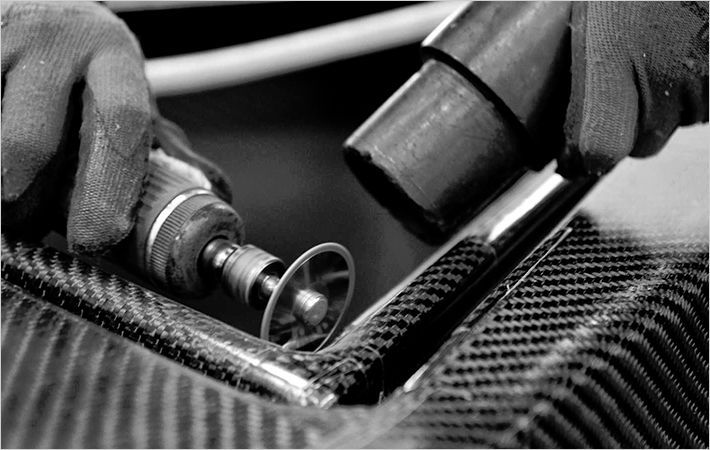Roubinet, an experienced French explorer, made a first attempt to reach the North Pole in 2011, but unfortunately the mission had to be aborted after only 28 days due to energy problems. Determined to succeed, Roubinet is now planning a new attempt and Berthet, an experienced sailor with an equally impressive adventure record, will join him. The second "La voie du pôle" expedition is scheduled to start in July 2013.
Despite attempts of many explorers, the complete crossing of the Arctic Ocean has not yet been carried out without external assistance. Roubinet and Berthet, aware of the technical challenges, are planning to cross the North Pole on a hybrid-catamaran which is able to sail on water as well as sea ice.
The new boat is being constructed using Divinycell Matrix, a material that meets the challenging requirements. To adapt to the conditions of the Arctic Ocean the boat has to be both light and sturdy. During the Arctic summer, the winds can be very soft. That requires a light boat that is able to progress with less than 10 knots of wind.
Moreover, when the winds are not favorable, the two explorers must be able to push and tow the boat along the sea ice, using only the strength of their muscles. The harsh terrain will put the sturdiness of the boat to the test. The Divinycell Matrix offers an excellent balance between lightness and strength, allowing Roubinet to construct an extremely strong boat weighing no more than 140 kg.
Another important factor is speed. In order to cross the Arctic Ocean in less than three months, they will have to maintain a rapid pace. Again, Divinycell Matrix delivers. The new boat is actually so fast that they now have to think of ways to control the speed so as not to run into spiky blocks of ice by mistake.
A dynamic and unpredictable environment, with possible encounters of polar bears, the Artic sea ice offers many challenges. They have to prepare everything meticulously, not least in the construction of their boat, while raising funds for their trip. If the expedition goes according to plan, Roubinet and Berthet will reach the Svalbard archipelago by September 2013.
During their voyage they will also do scientific work, which Berthet hopes will benefit the research of the polar environment. The expedition takes them into areas that are inaccessible to researchers. Lightweight and resistant, the composite materials hence open up for opportunities and adventures that were previously unimaginable.
Diab

